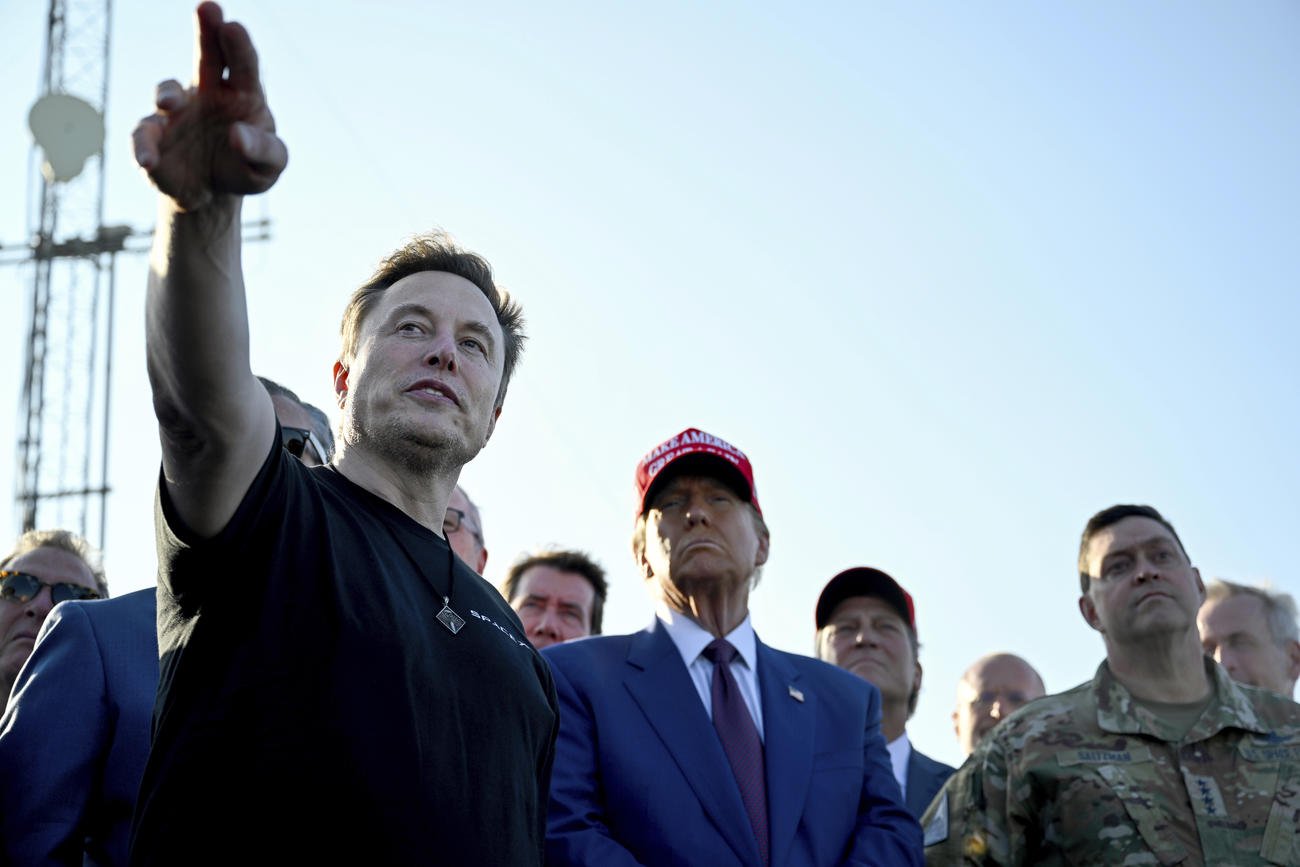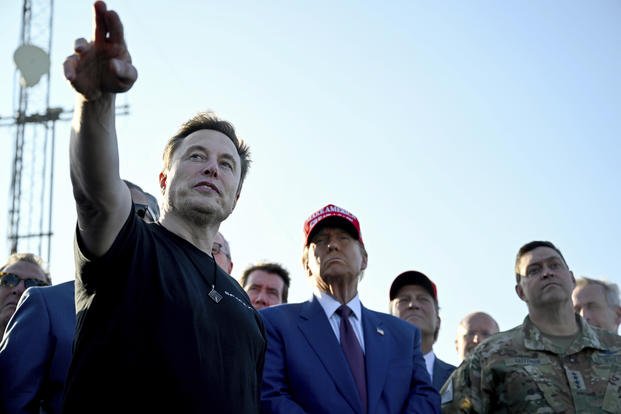

The national defense policy bill signed into law by then-President Donald Trump on Dec. 20, 2019, created the Space Force.
At first, the nation’s newest and smallest service branch was a punch line for a Netflix show starring Steve Carell. But on Friday, it celebrates its fifth birthday and has outlived much of the early criticism and lampooning. Experts tell Military.com that the next few years may mark some of the biggest changes in the Space Force’s short history.
In a month, the president who created the Space Force will be back in the White House, and one of the service’s biggest supporters, Rep. Mike Rogers, R-Ala., will retain his role as chairman of the powerful House Armed Services Committee. They both have plans to physically and financially grow the military’s tiniest branch.
Read Next: Ospreys Cleared to Fly Again, But Problematic Gearbox Gets More Scrutiny
“That period of time around its creation was certainly unique, complete with a Netflix series to poke fun at it and a lot of jokes being made by folks not plugged into our world,” Rogers said during a speech in Washington, D.C., this week.
“Well, that TV series isn’t around anymore, and neither are the jokes,” Rogers continued. “People have come to realize the very real threats that exist in space and the compelling need for a Space Force.”
Trump and Rogers have laid out immediate and specific paths for the Space Force as military threats in space from China and Russia continue to grow.
Trump has committed publicly to supporting efforts to create the first-ever Space National Guard. And Rogers has said that he expects the president-elect to move U.S. Space Command, the combatant command tasked with military operations in space, from Colorado to Alabama during his first week in office — a move Trump set out in his first presidential term that was reversed under President Joe Biden.
Project 2025, a policy plan created by the conservative think tank the Heritage Foundation for the Trump administration, urges several moves related to the Space Force, including calls to “reestablish offensive capabilities,” “rapidly expand space control capability,” and “declassify appropriate information about terrestrial and on-orbit space capabilities that threaten the U.S.”
It also wants to “increase the number of general officer positions” within the Space Force, as well as “explore creation of a Space Force Academy” separate from the Air Force Academy in Colorado.
The Trump transition team did not respond to an email from Military.com asking about specific policy plans for the Space Force.
The service has slowly been expanding its ranks since Trump signed it into law, growing from roughly 4,000 Guardians to an estimated 9,800 in 2025, according to budget documents — with about 4,680 officers and 5,120 enlisted members.
Rogers wants to grow that number even more.
“I know some of my friends in Congress are violently opposed to any growth as just increasing overhead, but if we want to have a Space Force capable of doing what the nation expects, it has to have enough people, and the right people, to carry out its mission,” Rogers said during his speech this week.
But even as the Space Force continued to increase its ranks, it faced a proposed budget cut this year. The service’s fiscal 2025 budget request was $29.4 billion, about $600 million — or 2% — less than the $30 billion it proposed the previous year. It was the first time since the service’s budget was separated from the Air Force in 2021 that it saw a decrease.
Todd Harrison, a senior fellow at the American Enterprise Institute who focuses on space policy, told Military.com in an interview that, while those cuts were tough for the service, he expects funding it to be a priority under the next administration.
“Despite that setback, I think things are actually looking up for the Space Force,” Harrison said, adding that if the overall Pentagon budget increases under the Trump administration, the smallest branch will capture more resources. “I think it’ll grow faster than the other services.”
In addition to getting Trump’s support in the White House and Rogers’ backing in Congress, the Space Force will also have Elon Musk — the richest man in the world and one of the service’s biggest military contractors — looped into the administration.
Musk’s SpaceX has received hefty government contracts from the Space Force, but concerns have also been raised about his conversations with foreign officials, according to reporting from The Wall Street Journal.
Last month, Sen. Jeanne Shaheen, D-N.H., and outgoing Senate Armed Services Committee Chair Jack Reed, D-R.I., wrote a letter to Pentagon and Justice Department officials calling for “an immediate review to ascertain whether Mr. Musk’s relationships with multiple high-level Russian officials warrant an investigation and a determination by the Department of Defense’s senior debarment official whether SpaceX should exclude Mr. Musk’s involvement in current or future U.S. government contracts.”
Meanwhile, Trump has tasked Musk to lead a “Department of Government Efficiency” that would examine spending and regulations related to the federal government.
Harrison said that the concerns about Musk do put the service in a tough position.
“I think it makes it more complicated, more sensitive,” he said. “One of their main vendors has a direct channel to the president. That complicates issues, but also that same person has some serious security concerns around him right now. … They know they can’t get on Elon’s bad side, but they also can’t trust him.”
Chief of Space Operations Gen. Chance Saltzman appeared alongside Trump and Musk during a SpaceX launch in Texas last month — notable face time for the general as all the service chiefs stare down an uncertain future under the new administration.
“I can’t overstate how proud I am of what we’ve accomplished over the past five years,” Saltzman said Friday in a post on X, the social media platform owned by Musk. “The Space Force has a lot of work ahead, but Guardians have proven they’re up to the task. I rest easy at night knowing the future of space is in their hands.”
Related: Trump Vows to Create Space National Guard as Issue Becomes a Political Lightning Rod Among States
